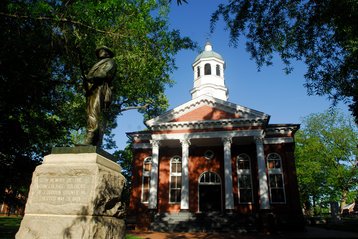Proposed data centers for the Route 50 Loudoun district will have to go through a special exception process that requires public hearings before both the Planning Commission and Board of Supervisors after a vote to change the rules.
Previously, data centers were a by-right use in the district, but the issue came to the fore during a disagreement over where Dominion Power should locate power lines for a new data center.
Loudoun fights for dominion
Dominion had planned to place the power lines along Route 50, but residents raised fears over visual, environmental and economic impact. After lengthy and protracted lobbying and negotiations, the lines were shifted to an alternative, more popular route.
The owner of the data center Dominion intended to supply was never officially confirmed, although it is believed to be Amazon.
Last year, hearing examiner Michael D. Thomas said when asked about putting the lines underground: “If you are advocating underground use transmission lines it’s your position that a tax district should be established whereby Amazon, the user of this particular line, would pay for undergrounding.”
But the furore over the issue is thought to have sparked this new change that will ensure future projects see more involvement from the community at large.
Supervisor Matt Letourneau (R-Dulles) told The Loudoun Times-Mirror: “What has happened over time is boards have rezoned [commercial and light industrial] property into residential property, including South Riding and Stone Ridge.
“There are some orphan parcels in between that are CLI parcels. So you have residential, then you have CLI, then you have residential … which has not only created land use issues, but also necessitated the need for giant power lines, which the county just spent the better half of the last couple years fighting.”
He said that there may still be some land parcels suitable for data centers along the route, however.
Loudoun was also recently involved in a fight against AT&T, which had planned to construct a mysterious data-center-shaped building it insisted was not a data center. After public awareness grew, and rumors of secret government facilities operating on Short Hill Mountain spread, AT&T backed off of its machinations for Project Aurelia.

